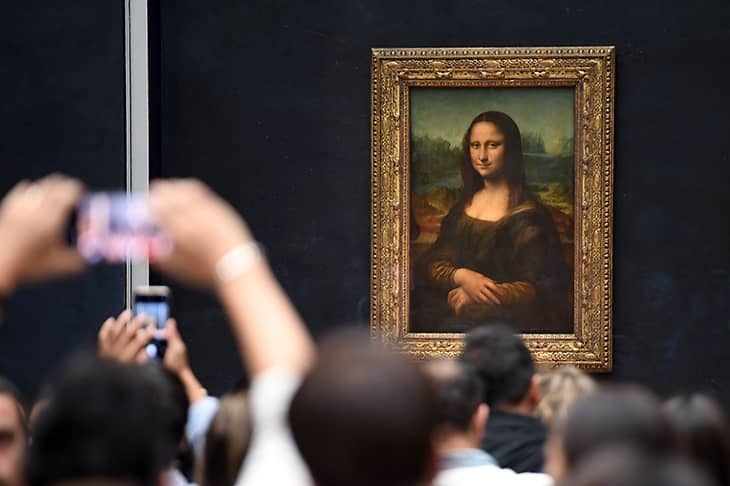There’s an intriguing conversation on YouTube between Mark Carney, former governor of the Bank of England, and the artist Damien Hirst. It will be easy to find on Google, since these are not names normally found on the same page.
Ten minutes in, Hirst makes an engaging observation about the value we attach to art. He explains that art collectors will pay anything for a painting, even though the raw materials cost almost nothing. It’s a hundred quid’s worth of canvas, wood and paint, but you can sell it for millions. ‘The problem happens when you make something like a diamond skull. Suddenly people want to know what you paid for the platinum, how much the diamonds are worth…’ Once you have costly ingredients, people start obsessing about raw materials in a way they simply don’t with a painting.
For some inexplicable reason, we are perfectly happy to pay for intangible value in some domains: music, paintings, fashion, wine. But as soon as you mix quantifiable and unquantifiable value in the same thing, our obsession with the first crowds out our appreciation of the second.
Nice egg, Mr Fabergé, but I couldn’t help noticing the gold content seems low
There is here a paradox which business and technology needs to address but never will. While more use of data, quantification and comparison is always good in theory, it is not always good in practice. For one thing, too much data drives people towards analytical thinking — optimising the individual parts — rather than systems thinking, where you focus on the value of the whole. Nice egg, Mr Fabergé, but I couldn’t help noticing the gold content seems low.
Had consumers made objective, data-driven comparisons between mobile phones — based on metrics such as battery life — the iPhone would never have succeeded. The magic of the iPhone resides in the whole, not in the sum of its unremarkable parts. One problem with endlessly demanding comparisons is that it prevents you from doing anything incomparable. The Soviet Union did not fail from a shortage of statistics, but from a failure to escape them.
We like to think capitalism is immune from this. If only. I work in advertising, where we were originally paid through media commission. This meant clients had no incentive to question your activities, because the cost was the same regardless. With nothing else to obsess about, they focused on whether the advertising worked — a fairly sensible preoccupation. Then, to make things more quantifiable, we were told to charge by the hour. Like all professional services firms, we find ourselves spending as much time justifying our activities as performing them, while supporting a Soviet-style internal bureaucracy.
It is far worse in other large organisations, where the processing of information has become an end in itself. As one history professor despairingly says: ‘When I joined the faculty, the entire administrative function was performed by one woman who knew everything. Now we have more administrators than we have historians.’
The bizarre result is that data-driven capitalism unintentionally generates communist behaviours in the businesses it infects. Business guru Roger L. Martin puts it best: ‘We have created a world where we reward the manipulation of quantities more than the appreciation of qualities.’
You may occasionally hear businesspeople quoting the phrase: ‘What gets measured gets managed.’ What they don’t realise is it originated as a criticism. Expressed in full it reads: ‘What gets measured gets managed — even when it’s pointless to measure and manage it, and even if it harms the purpose of the organisation to do so.’ Or, more succinctly: ‘What gets mismeasured gets mismanaged.’
One great advantage entrepreneurs often enjoy over large corporations is that they know so much less.







Comments